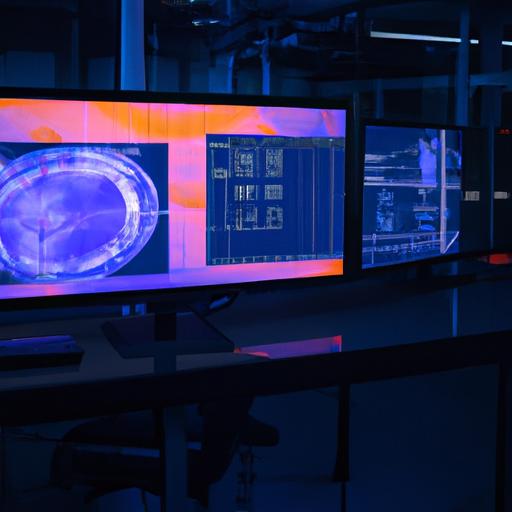Introduction
In today’s fast-paced business environment, efficiency and precision are paramount, especially in the plastics industry. That’s where plastics erp software comes into play, revolutionizing the way businesses manage their operations. But what exactly is Plastics ERP Software? Essentially, it’s a comprehensive system designed to streamline processes specific to the plastics manufacturing sector. From inventory management to production planning, this software offers a range of tools tailored to meet the unique needs of the industry.
The plastics industry is dynamic and competitive, requiring companies to stay ahead of the curve to thrive. Implementing ERP software in this sector is not just beneficial but essential. By centralizing data, optimizing workflows, and enhancing communication between departments, Plastics ERP Software empowers businesses to make informed decisions, boost productivity, and ultimately drive growth. Stay tuned as we delve deeper into the key features, benefits, and best practices of utilizing Plastics ERP Software to propel your business to new heights.
Key Features of Plastics ERP Software
Inventory Management
Efficient inventory management is crucial in the plastics industry to ensure optimal stock levels, minimize wastage, and meet customer demands. Plastics ERP Software offers real-time tracking of inventory, automated replenishment processes, and accurate forecasting tools to streamline operations and reduce costs.
Production Planning and Scheduling
Streamlining production processes is essential for meeting deadlines and maximizing output. Plastics ERP Software enables businesses to create detailed production plans, allocate resources effectively, and adjust schedules in real-time. With enhanced visibility and control over production activities, companies can optimize their workflows and improve overall efficiency.
Quality Control
Maintaining high-quality standards is non-negotiable in the plastics industry. Plastics ERP Software includes robust quality control features such as inspections, audits, and compliance tracking to ensure that products meet specifications and regulatory requirements. By implementing quality control measures within the ERP system, businesses can enhance product consistency and customer satisfaction.
Supplier Management
Effective supplier management is key to sourcing quality materials, controlling costs, and maintaining strong vendor relationships. Plastics ERP Software centralizes supplier information, tracks performance metrics, and facilitates communication with suppliers. By streamlining the procurement process and monitoring supplier performance, businesses can minimize risks and optimize their supply chain.
Customer Relationship Management
Building and nurturing customer relationships is essential for long-term success in the plastics industry. Plastics ERP Software includes customer relationship management (CRM) tools to manage customer interactions, track sales leads, and analyze customer data. By leveraging CRM functionalities within the ERP system, businesses can enhance customer satisfaction, increase loyalty, and drive revenue growth.
How to Choose the Right Plastics ERP Software
Considerations for selecting the best software
When it comes to choosing the right Plastics ERP Software for your business, there are several key considerations to keep in mind. Firstly, assess your specific needs and requirements. Do you require robust inventory management features, advanced production planning capabilities, or seamless integration with other systems? Identifying your priorities will help you narrow down your options and find a solution that aligns with your business goals.
Top vendors in the market
With a plethora of vendors offering ERP solutions for the plastics industry, it can be overwhelming to determine which one is the best fit for your business. Researching the top vendors in the market and comparing their offerings, pricing, and customer reviews can provide valuable insights. Look for vendors with a proven track record of success, strong customer support, and a user-friendly interface to ensure a smooth implementation process.
Case studies of successful implementations
One effective way to gauge the effectiveness of Plastics ERP Software is to review case studies of successful implementations. These real-world examples showcase how businesses in the plastics industry have leveraged ERP software to streamline operations, increase efficiency, and drive growth. By studying these case studies, you can gain valuable insights into the potential benefits and challenges of implementing ERP software in your own organization.
Conclusion
In conclusion, the integration of Plastics ERP Software is not just a trend but a necessity for businesses in the plastics industry to thrive in today’s competitive landscape. By leveraging the advanced features and functionalities offered by ERP software, companies can streamline their operations, enhance decision-making processes, and drive overall efficiency. From inventory management to production planning, ERP software provides a comprehensive solution to meet the unique needs of the plastics industry.
As businesses embark on the journey of implementing Plastics ERP Software, it is crucial to recognize the potential challenges that may arise during the process. By following best practices, providing adequate training and support for employees, and proactively addressing obstacles, companies can successfully navigate the implementation phase and maximize the benefits of ERP software. Embrace the power of technology and take your plastics business to new heights with the transformative capabilities of Plastics ERP Software.
